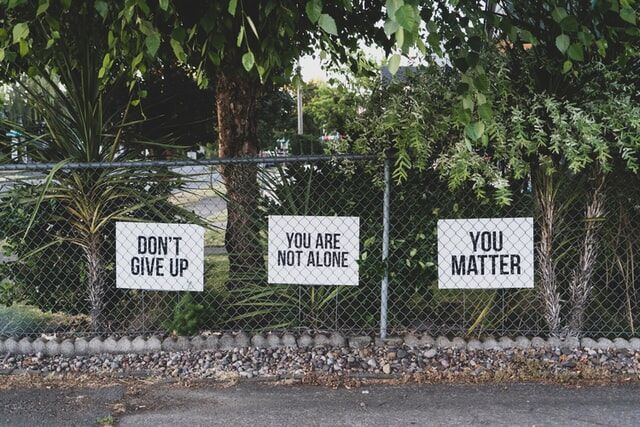Mental health crises during a pandemic
November 17, 2020
Months into the COVID-19 pandemic, many people are struggling financially, physically and mentally.
When Tanner Owens, senior in journalism and mass communication, took a look back on the months leading to the COVID-19 pandemic, he said he was mentally at a good place.
Owens said his classes were going pretty well, he was involved with intramurals at Iowa State and he had an internship based in Des Moines.
“I would say that I was generally happy most of the time before COVID-19,” Owens said.
According to the Centers for Disease Control and Prevention (CDC), how one reacts to stress during COVID-19 depends on many different factors in your life, some of them being your social support from family and friends, your financial situation and even your health and emotional background.
The CDC said different changes that happen due to COVID-19 and the ways the world tries to contain the virus can affect anyone.
Owen said being in quarantine had an impact on his mental health, although for the most part, his mental health stayed the same. He said it’s tough to stay optimistic, but adapting and making the best of it is the only thing people can do.
“There’s a general sense of anxiety and sadness that comes with living in the pandemic,” Owens said.
Owens said the pandemic is not being taken care of quickly, and the longer it goes on, the more restless everyone is. However, during quarantine Owens said he found different ways to keep himself preoccupied.
“I practiced playing my bass guitar, I set up a dart board and started practicing that and I beat the campaigns of about 20 different video games,” Owens said. “I also have a dog, so he kept me company too.”
However, Esther Ninkunda, a senior in high school and freshman at Iowa State next year, said although her mental health prior to the COVID-19 pandemic was not doing too well, it was better than it is today.
“If I had to rate it from the scale of one to 10, one being terrible and 10 being great, I’d be at a three,” Ninkunda said.
Ninkunda said the factors that caused the most stress in her life were school and family problems; her mental health right now just started to get worse than ever. She went from being okay to having a current state of numbness.
“I am not a suicidal person,” Ninkunda said. “But imagining my own death is not a healthy way to live.”
Ninkunda said her main takeaway is people will go crazy when they are forced to stay inside with the same people every single day, especially if they are the people that already drive them crazy.
Mehzore Gweh, senior in kinesiology and health, said prior to the pandemic, she was happy being able to interact with other students and faculty, but now her mental health is worse.
Due to COVID-19, she said she is unable to do field experiences for her major and even engage with other students in an efficient way.
“There is no substitute for in-person interactions,” Gweh said.
However, Owens said it is important to keep other people’s health in mind during this time, even though people miss in-person interaction and normal, everyday life. He said his main takeaway from the COVID-19 pandemic is people need to stop the mindset that COVID-19 will not affect them just because they are young.
Owens said it is important to consider what might happen if an individual accidentally spreads COVID-19 to their families or people in the community.
“People need to take it seriously,” Owens said.







